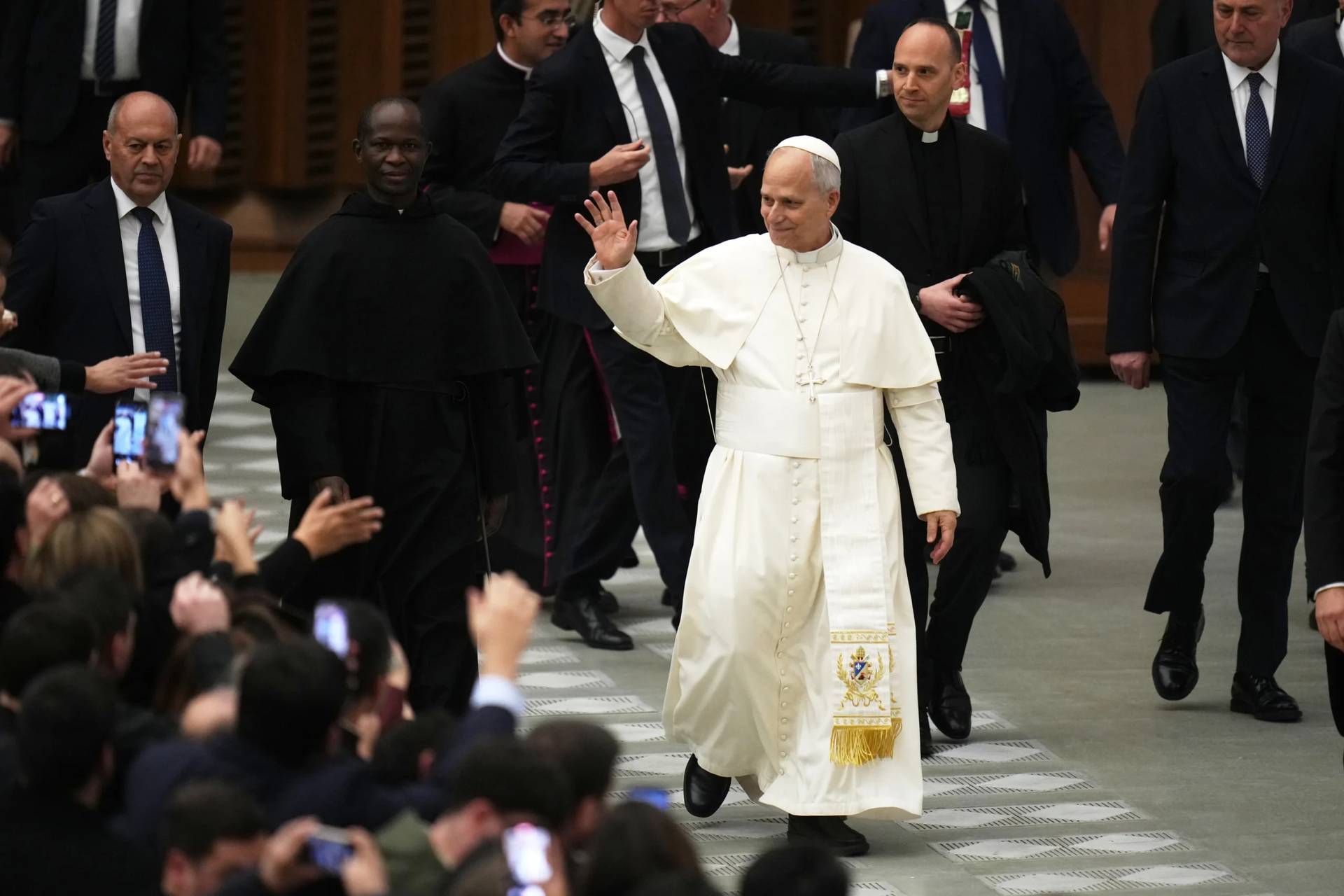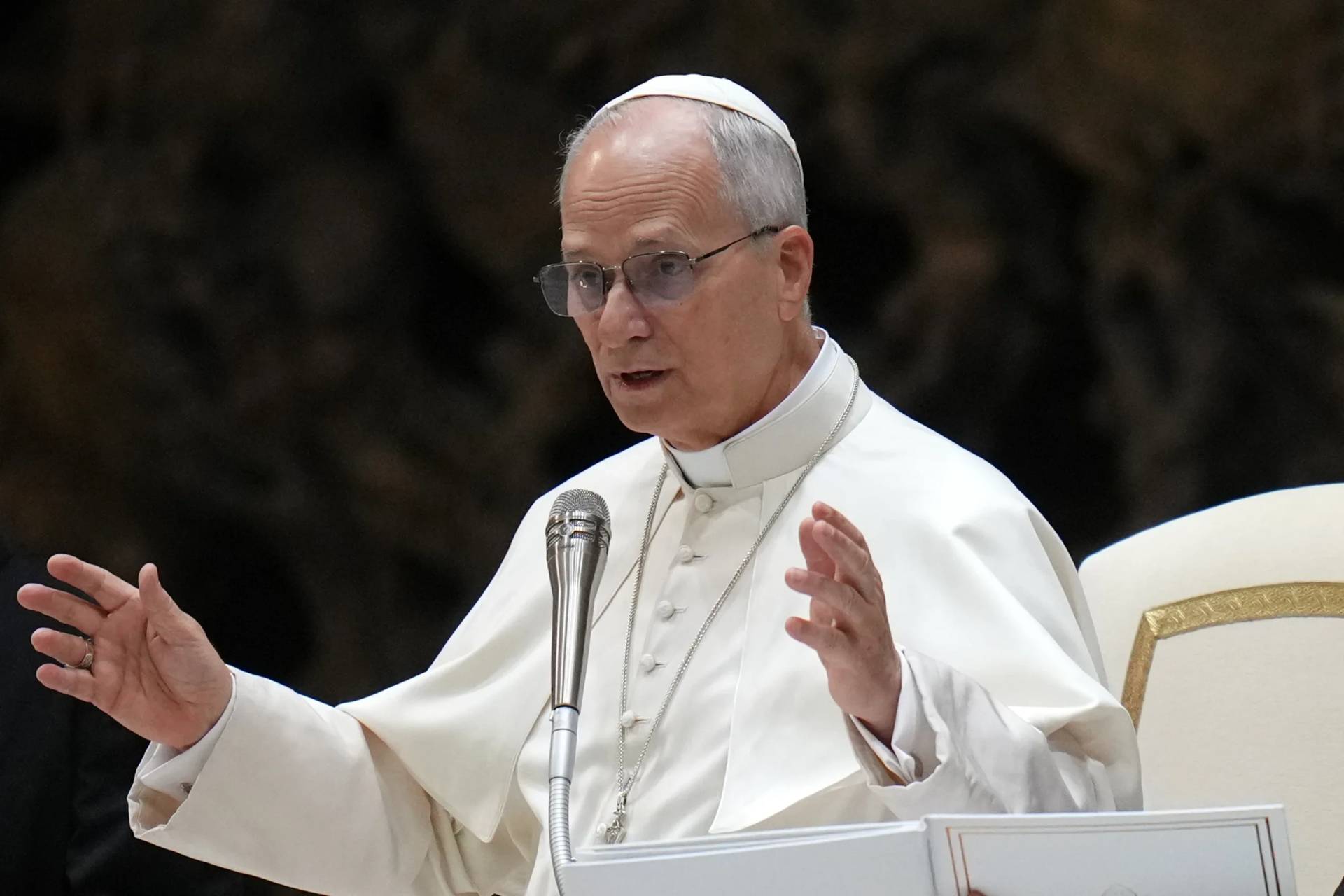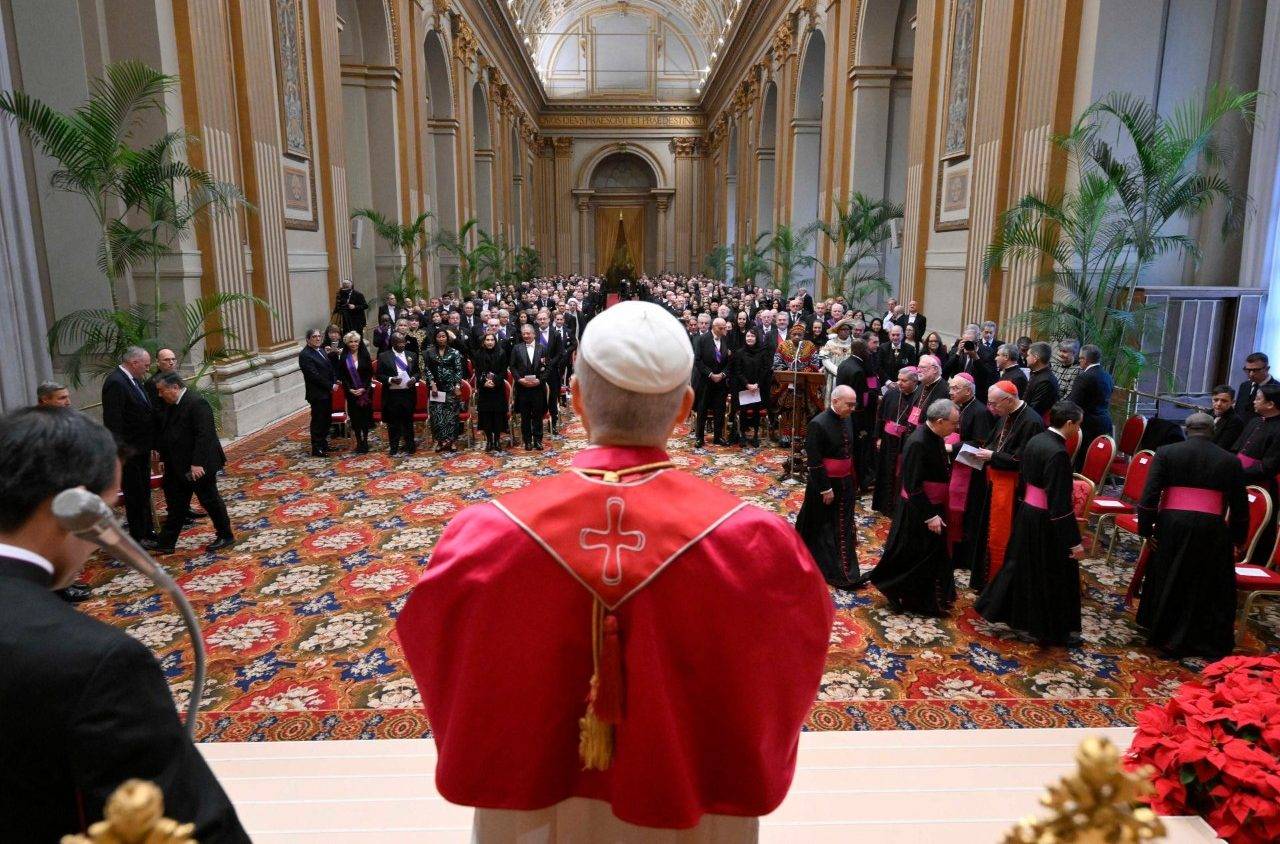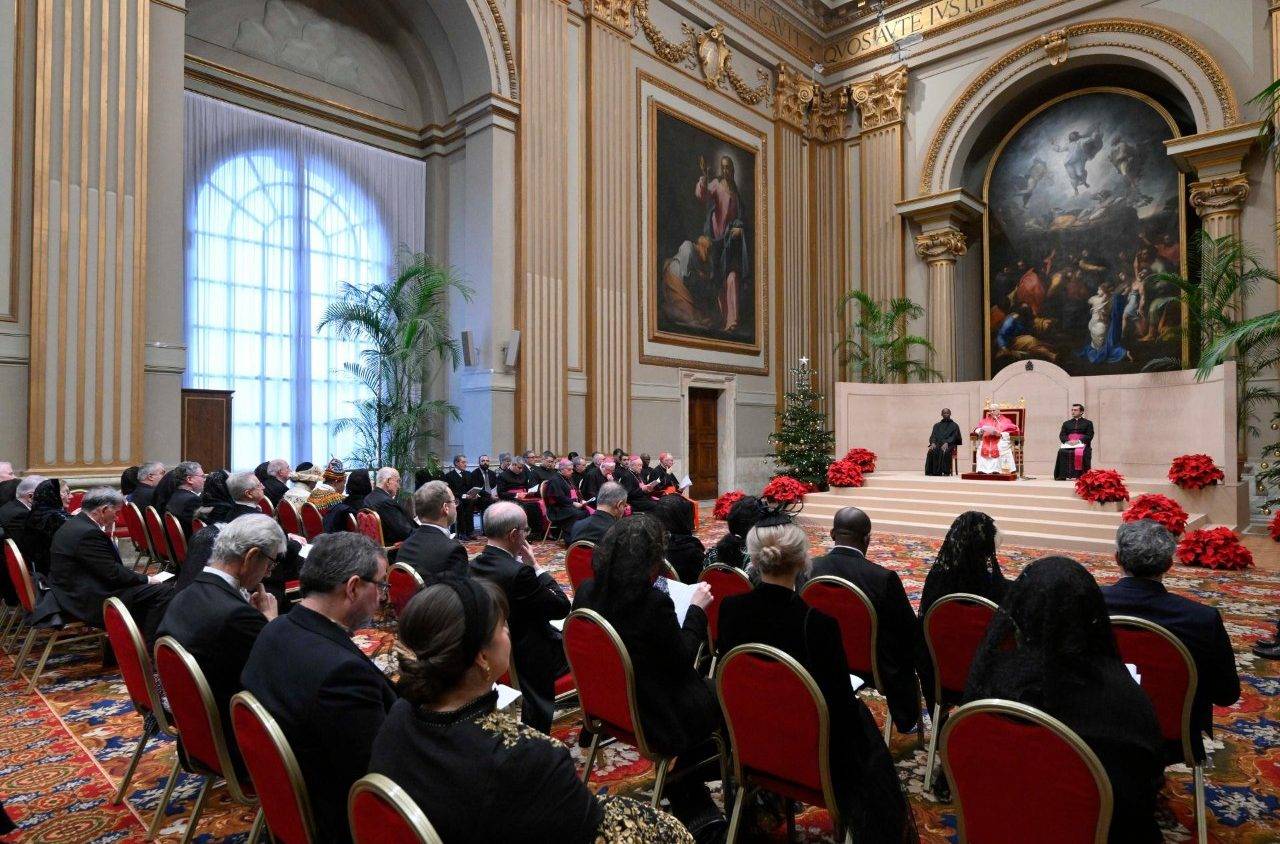ROME – As tensions continue to rise in Nicaragua, with over two dozen people killed by Daniel Ortega’s government forces on Saturday, Catholic bishops in the country have a clear message: stop the violence and stop the repression, because we’re with the people.
Pope Francis joined their voices on Sunday, during his weekly address after praying the Regina Coeli with thousands who’d gathered in Rome’s St. Peter’s Square.
“I’m very worried over what’s happening these days in Nicaragua, where, following a social protest, clashes took place that even caused some victims,” he said.
“I express my closeness in prayer to that beloved country, and I join the bishops in asking for an end to any type of violence,” Francis said, adding that every “useless spilling of blood must be stopped,” and the issues at hand need to be resolved “peacefully and with a sense of responsibility.”
Since Wednesday, massive protests have been taking place in Nicaragua, mostly headed by young people, who are against a recently announced reform of the social security system. The government measures raised the contribution of workers and employers while reducing future pensions, which has led to one of the biggest crises in the Ortega administration.
Ortega has been president of Nicaragua since 2007. Left-leaning, he’s the leader of the Sandinista National Liberation Front, named after Augusto César Sandino, who led the Nicaraguan resistance against the United States occupation of Nicaragua in the 1930s.
On Sunday, he withdrew changes to the social security system that triggered deadly protests.
Speaking about the protesters, the majority of whom were students, one bishop called them the “moral reservoir” of the country, while others insist that the Church’s position is not that of opposition to the government, but of support of the people.
“I would like to thank you, in the name of the Church, because you are the moral reservoir that we have,” said Bishop Silvio Baez, the auxiliary of Managua, the country’s capital city. “You have woken the nation up.”
The prelate was addressing a group of some 2,000 students who on Saturday were protesting Ortega’s regime. They were gathered in the cathedral of Managua.
Encuentro de los obispos de Managua y todo el clero de la Arquidiócesis con los jóvenes que están en la Catedral de Managua, para agradecer su testimonio, animarles en su lucha por la justicia social y ofrecerles nuestro apoyo y oraciones. pic.twitter.com/pXvF6vCvzb
— Silvio José Báez (@silviojbaez) April 21, 2018
The previous day, Baez had promised the Catholic clergy was not going to “leave the young people who are in the cathedral alone, we’re going to protect them against everything.”
On Saturday, Baez also said that because of his critical view when it comes to political issues, he’d gone to the cathedral with Cardinal Leopoldo Brenes and the clergy from the diocese. When they arrived on the ground, the students applauded.
Addressing the youth gathered, he said that the Catholic Church is supporting their cause because it’s “fair,” and urged them not to be manipulated by political ideologies because their cause is one of “social justice.”
“Be careful,” he said, according to various local reports. “Do not be blinded by political ideologies. The cause you have is one of social justice. Pope [Francis] has said this repeatedly: ideologies are harmful, because they have a partial view of reality.”
“We have to be attentive when it comes to ideologies, because they search for their own interests, economic and political,” Baez said. “And Pope [Francis] has said a very important thing regarding ideologies: ideologies think in the name of the people, but they aren’t willing to allow the people to think.”
The prelates visited the cathedral a day after violent clashes between protesters and the police force, which took place in the area surrounding the cathedral. On Saturday, the clashes became even more violent, resulting in the death of at least two dozen people, over 80 wounded, and several whom, at the time of this report, remain unaccounted for.
The twitter account “SOS Nicaragua,” said on Saturday night local time that the auxiliary bishop had “defended and protected students, the resources and the medical personnel inside the cathedral,” defending “the house of God and its principles.”
Journalist Mario Rueda, also on Twitter, stated that a nun and a priest negotiated with the Sandinistas to leave the area surrounding the cathedral, avoiding further clashes, this time between two factions of civil society.
In the wee hours of Sunday morning, Baez was very active on Twitter, sharing news reports on the rising tensions in Nicaragua, denouncing shots being fired in different parishes, and re-posting quotes attributed to him, presumably during his address to the youth in the cathedral, including one that said: “History depends not only on the will of the powerful, but above all, on the capacity of the peoples to organize.”
Luis Herrera, rector of the cathedral, said on Saturday that agents of the National Police went into the church’s grounds “shooting their weapons,” something the security force denied, despite evidence reported by journalists on the ground.
The government is censoring the press, including shutting down the national network for transmitting images of the protests. Images shared through social media, however, showed police officers firing tear gas and other projectiles into the Catholic cathedral.
Denying responsibility, Ortega said on Saturday that “small groups of the opposition” are behind the violence, as they “conspire against the model of alliances, because they think that they can take the government and they don’t care at what price.”
The situation in the country began deteriorating on Wednesday, but became even worse when, on Saturday morning, the Central American nation woke up to find the army deployed in several cities.
On Friday, the United Nations High Commission for Human rights urged the authorities to avoid further attacks against the protesters and the media. By then, according to the government, three people had been killed in the violent clashes, and dozens had already been wounded.
The UN office also expressed concern over the fact that news outlets were being closed for covering the protests, and called for the protection of both the protesters and journalists. However, a reporter was among those killed on Saturday, gunned down as he was doing a Facebook Live.
“The Nicaraguan State has to fulfill its international obligations to guarantee that the people can freely exercise their rights of freedom of expression and freedom of peaceful gathering and association,” a government spokesman said.
In a statement released on Friday, the Nicaraguan bishops’ conference rejected the reforms to the social security system and expressed its support of the “scream of the Nicaraguan youth.”
Saying that walking back a decision is a “sign of humanity,” the bishops urged the government to dialogue with the different sectors to solve the conflict, warning that it can become worse if the needed actions aren’t taken on time.
Rejecting the government’s oppression, the bishops also urged the people to continue raising their voice against the measures, exercising their right to protest peacefully, something defended both by “civic and evangelic values.”
“There are social sins that no human being can ignore,” they wrote.

















